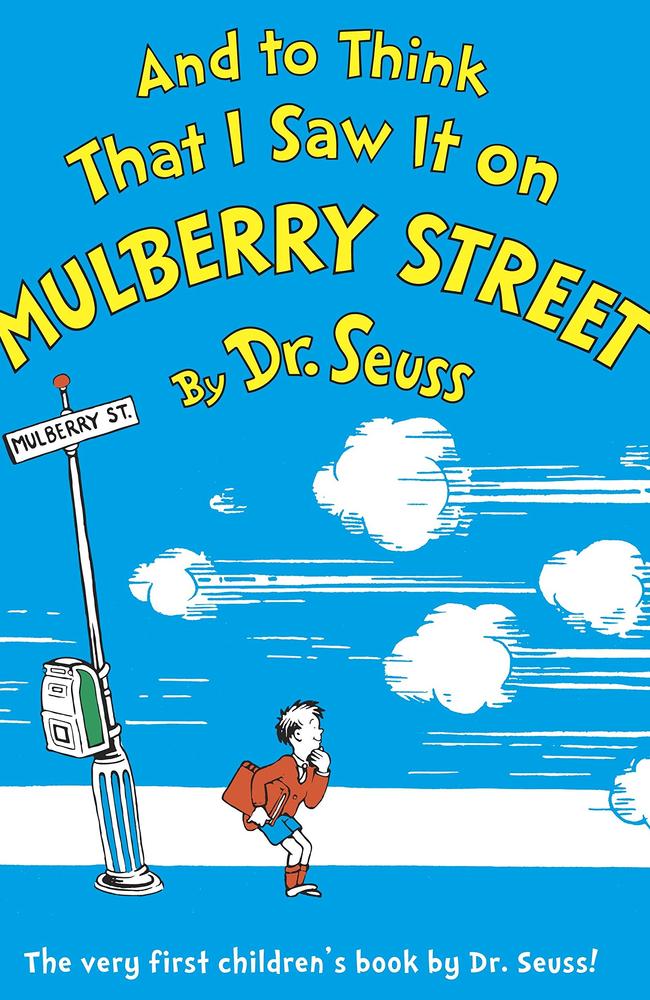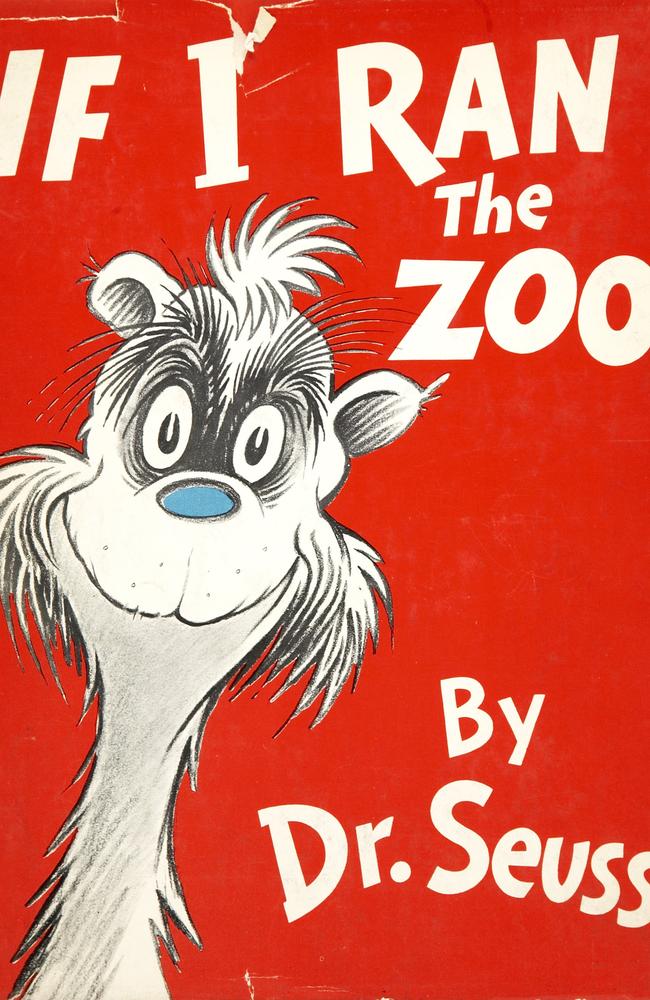Dr Seuss cancelled: Six books to cease publication over racist, insensitive portrayals
Six popular children’s books by Dr Seuss are getting the axe – years after academics pointed out some of their racist and outdated imagery.
World
Don't miss out on the headlines from World. Followed categories will be added to My News.
Six Dr Seuss titles will be pulled from publication in response to ongoing backlash against racist and insensitive imagery in them.
Dr Seuss Enterprises, the company that protects and preserves the late author’s legacy, said today it would cease publication of six books – And to Think That I Saw It on Mulberry Street, If I Ran The Zoo, McElligot’s Pool, On Beyond Zebra!, Scrambled Eggs Super! and The Cat’s Quizzer.
The company made the decision after listening to feedback from teachers and academics, who have studied the children’s books and their potential impact on a diverse society.

RELATED: Dr Seuss celebration dropped after books found to have ‘racial undertones’
Famed children’s author Theodor Seuss Geisel died in 1991. His books have since become some of the most popular children’s books in the world, with more than 600 million copies sold globally.
His popularity means his estate continues to earn millions of dollars each year, with Forbes listing him as the second highest-paid dead celebrity in 2020, with earnings of $33 million.
“These books portray people in ways that are hurtful and wrong,” the company said.
“Ceasing sales of these books is only part of our commitment and our broader plan to ensure Dr Seuss Enterprises’ catalogue represents and supports all communities and families.”
And To Think That I Saw It On Mulberry Street, the first children’s book from Dr Seuss, which was published in 1937, depicts an illustration of a “Chinese man with sticks”, who has two lines for eyes and is holding chopsticks and a bowl.
If I Ran The Zoo (first published in 1950) has two men in the book, described as African men, who are wearing grass skirts, are barefoot and have their hair in knots.

The move triggered debate in the US, with the issue even featuring at the White House daily briefing.
White House press secretary Jen Psaki was asked why the president left out Dr. Seuss from the “Read Across America Day” proclamation. Ms Psaki punted the question to the Department of Education.
“The proclamation was written by the Department of Education, and you could certainly speak to them about more specifics about the drafting of it,” Ms Psaki said.
“But read Across America Day, which is, you’re right, has not existed forever, has only been around for a short period of time, elevates and celebrates a love of reading among our nation’s youngest leaders.”
The dropping of the six books comes as a school district in the US announced it would shift its focus away from Dr Seuss after a study found the popular children’s books displayed “harmful and stereotypical Orientalist tropes”.
The Loudoun school system, in the US state of Virginia, triggered the debate after it revealed it had called on its institutions to promote a more diverse group of books to kids.
Read Across America Day is held on March 2 each year, the birthday of Dr Seuss.
But a study from 2019 shed a different light on the author’s books, revealing only 45 of the more than 2200 human characters in 50 of Dr Seuss’ books were people of colour.
Of those 45 characters, 43 showed behaviour that had harmful, racist undertones.
Addressing the controversy, Loudoun schools spokesman Wayde Byard said they were not banning the books, but simply shifting to a more diverse pool of literature.
“Dr Seuss books have not been banned in Loudoun County Public Schools (LCPS). LCPS believes that rumour started because March 2 is ‘Read Across America’ day,” Mr Byard told The Washington Post.
“Schools in LCPS, and across the country, have historically connected Read Across America Day with Dr Seuss’ birthday.
“Research in recent years has revealed strong racial undertones in many books written/illustrated by Dr Seuss.
“Given this research, and LCPS’ focus on equity and culturally responsive instruction, LCPS has provided guidance to schools in the past couple of years to not connect Read Across America Day with Dr Seuss’ birthday exclusively.
“We want to encourage our young readers to read all types of books that are inclusive and diverse and reflective of our student community, not simply celebrate Dr Seuss.
“Dr Seuss and his books are no longer the emphasis of Read Across America Day.
“That being said, Dr Seuss books have not been banned; they are still available to students in our libraries and classrooms.”

Dr Seuss has been the face of Read Across America for more than two decades but schools are increasingly moving away from the books.
The 2019 study, titled “The Cat is Out of the Bag: Orientalism, Anti-Blackness, and White Supremacy in Dr Seuss’s Children’s Books”, found “white supremacy is seen through the centring of whiteness and white characters, who comprise 98 per cent of all characters”.
“Notably, every character of colour is male. Males of colour are only presented in subservient, exotified, or dehumanised roles,” the report added.
“This also remains true in their relation to white characters.
“Most startling is the complete invisibility and absence of women and girls of colour across Seuss’ entire children’s book collection.
“In addition, some of Dr Seuss’ most iconic books feature animal or non-human characters that transmit orientalist, anti-black, and white supremacist messaging through allegories and symbolism.”
The National Education Association, which created Read Across America Day, moved to “celebrating a nation of diverse readers” from 2017.
Dr Seuss books have increasingly been in the news over the years.
In 2017, the librarian at Cambridgeport Elementary School, in the US state of Massachusetts, rejected a gift of Dr Seuss books from then-First Lady Melania Trump.
Librarian Liz Phipps Soeiro said the illustrations were “steeped in racist propaganda, caricatures, and harmful stereotypes”.
“You may not be aware of this, but Dr Seuss is a bit of a cliché, a tired and worn ambassador for children’s literature,” she said at the time.
“Another fact that many people are unaware of is that Dr Seuss’s illustrations are steeped in racist propaganda, caricatures, and harmful stereotypes.”
Originally published as Dr Seuss cancelled: Six books to cease publication over racist, insensitive portrayals



